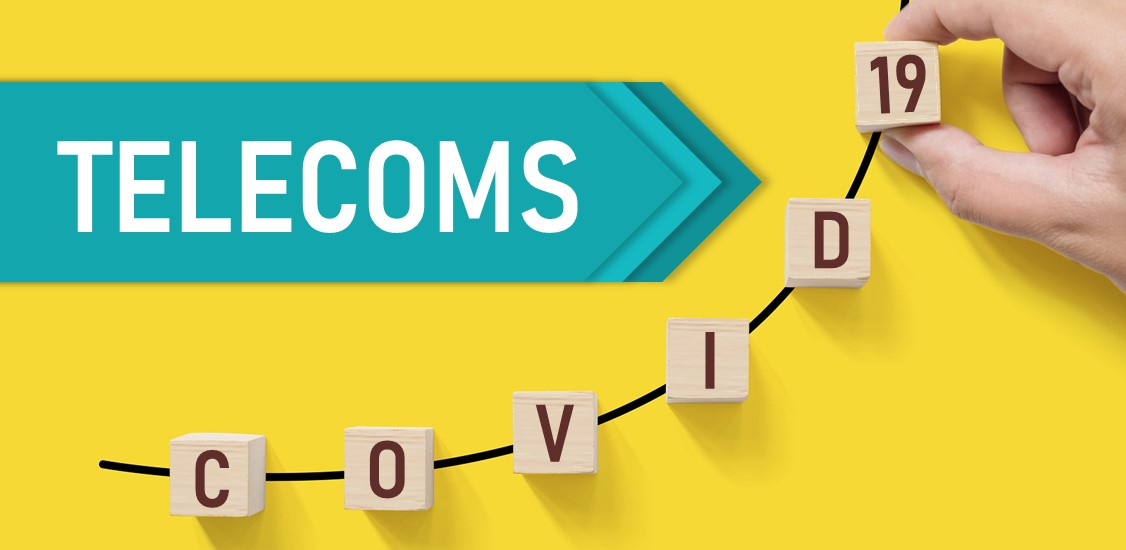Thank you to all who have, are, or will be helping us beat Covid-19.
It is undeniable - natural disasters, like what we are experiencing with Covid-19, are extremely disruptive and can be scary for many people. But they can also result in massive investment from governments and the private sector that ultimately stimulates growth that results in fundamental improvements in our lives.
I say it is undeniable because there are experts who have studied previous events. One of the most notable was the team led by Douglas Dacy and Howard Kunreuther, whose book "The Economics of Natural Disasters" was published in 1969. The authors looked at many disasters, including the 1964 earthquake in Alaska, and found that the government’s loans and grants for rebuilding positively changed the lives of many Alaskans.
Economist Gus Faucher has also looked at the positive effects of natural disasters and found economic and job growth in Florida after Hurricane Andrew and in the stimulus needed to help bring Los Angeles out of an economic slump after the Northridge earthquake.
The examples are real, and many of us old enough to have lived through Y2K (the year 2000) know that the massive amount of private investment in computers, software, networks, and processes laid the foundation for the explosion of the internet economy that we enjoy today, as well as the societal changes that accompanied it. Analyst firm Gartner estimated that between $300 billion and $600 billion was invested to deal with the potential code bug.
First, a big thank you
I wanted to take a moment to say thank you to all the first responders, medical teams, politicians, and volunteers who are working tireless hours to help those most in need. My guess is these people would have us watch Bill Gates’ TED talk from 2015 titled “The next outbreak? We’re not ready,” where he outlined our current situation and called for global investment so we would be prepared for a pandemic like COVID-19. By the way, this isn’t the first time his predictions have come true.
But another thing to be thankful for is our advanced telecommunications network. Now more than ever we can see the power of the network to bring people together virtually when they can’t be together physically. To help people get the information and supplies they need without leaving the house. To help us feel connected while we’re quarantined or practicing social distancing. To help educate our children when their schools are shut down. And of course, to entertain us and help us pass the time.
And so, I also want to send thanks to the companies and people that made the internet, the cloud, and advanced communications possible. Many of these people are our competitors, but right now, I see only family. I have never been prouder to be part of an industry that is so directly helping people manage through this crisis. So, thank you to our optical competitors Ciena, Nokia, ADVA, and Fujitsu. Simply put, without the innovations that we have all driven in optical networks, none of this would even be possible. If you are interested, take a look back at the history of optical innovation that was detailed at OFC during the OSA’s “Celebrating 50 Years of Light-speed Connections” event.
Thank you to Cisco, Juniper, Ericsson, and other enablers for laying the foundations of our IP and mobile networks and building the backbone of the internet.
Thank you to the service providers around the globe for building the networks that are fueling our homes during COVID-19. AT&T, Verizon, NTT, Comcast, Softbank, Airtel, DT, Telefónica, Vodafone, Telia Carrier, Telstra and the hundreds of others - we could not do this without you, and we will do our best not to abuse your network so all of us can work and live in peace, at home, for a while.
Thank you to Amazon for having the idea to sell excess compute resources and commercializing the cloud. And to Microsoft, Google, and all the other cloud providers for investing in the idea and infrastructure that our kids, partners, friends, and neighbors are using to stay sane.
Thank you to developers for giving us the software and apps needed to make this pandemic more manageable. Innovations in video conferencing, messaging, collaboration, food delivery, e-learning, and so many more areas are really helping to reduce anxiety and enable us to continue living our lives with minimal interruption.
Finally, thank you to all the streaming and content platforms and cable and satellite companies for bringing us the distractions we need to forget about COVID-19 for a minute or an hour. How would we all feel without Netflix, Amazon Prime Video, Hulu, YouTube, and all the others? One thing we don’t lack is something interesting to watch on our TV, phone, or laptop.
Where is the good of COVID-19?
Around the globe, governments are writing and passing stimulus packages that total in the trillions of dollars. These investments will go to people and industries in need and to help the economy rebound. The private sector will surely also look back and invest in what went wrong as well as what went right. The venture capitalists will be waiting with open arms.
So, once the virus loses traction globally, and as we start to return to our offices, soccer fields, churches, temples, and synagogues, what changes?
Fewer handshakes - maybe the forearm or fist bump will finally take off.
Fewer trade shows - the role of in-person group meetings is important, but do we need as many as we have? Can virtual meetings replace some in-person events?
More teleworking - hopefully more employers will finally see the light and realize that teleworking not only improves productivity but also employee happiness and health.
More e-learning - While some primary and secondary schools have the computers, software, and processes to learn from home, many do not.
Network expansion - there have been many reports of overtaxed service provider networks, so operators will need to make even more, and faster, investments in capacity and resiliency.
I hope we all take a step back, turn off the 24/7 news, breathe, and spend some time thanking those who are enabling us to cope with quarantine and isolation, those who are helping people in need, those who are taking care of the sick, those who are managing their kids while schools are closed, and those who are being personally responsible and helping to minimize the spread. Together, I have no doubt that we will inevitably beat COVID-19 - and when we do, we will come out stronger on the other end.






















